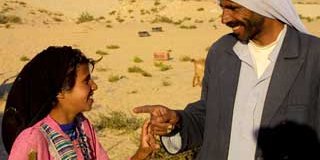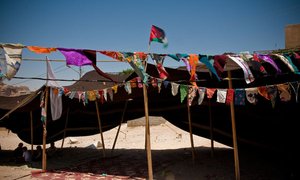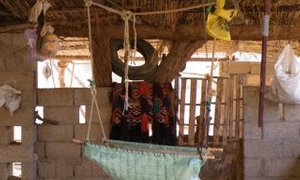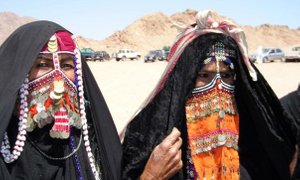"A younger his actions, represent his pedigree."
Bedouin proverb
The three-generation family is the ideal family unit and although the meals are usually used together, everyone sleeps in their own homes, rooms or tents. The new family of a husband and wife usually stays close to the larger family unit until they have sufficient manpower and income (previously this was the size of a herd), in order to survive. Occasionally you see brothers and or cousins (in the male line) join forces and form a family unit.
Grandparents, parents, older siblings, aunts, uncles, cousins, all take an active part in the upbringing of the children.
If the child is 6 or 7 years old, they take care of simple household tasks and not long after the child is a full working member of the family. The adolescence of a young person is barely acknowledged here, as a youngster of 16 or 17 years old (he or she) is accepted as a full member of the Bedouin community.
The names of Bedouin comprise of its own name, his father's name, the name of his grandfathers and his great-grandfather in the male line. Women always keep their own name, also after marriage, while the smallest family-unit (Bayt) is called after the oldest male resident.
Bedouin name often more than five generations ancestors in the male line and their relations with descendant groups of their people. There are distinctive terms for relatives on mother's side and father's side and all terms indicate the sex of the person designated to. This model of descendant groups in the male line provides the main framework for discussing marriages and resolving legal disputes and conflicts.
Source: Encyclopedia of World Cultures - D. Chatty; BEDAWI - R. W. de Jong




